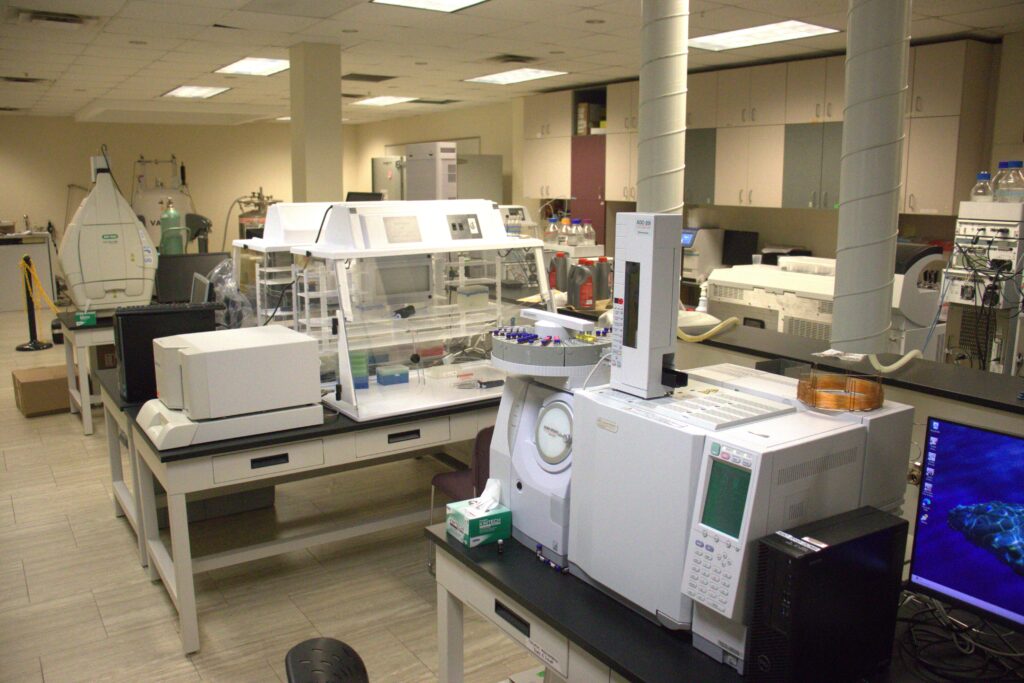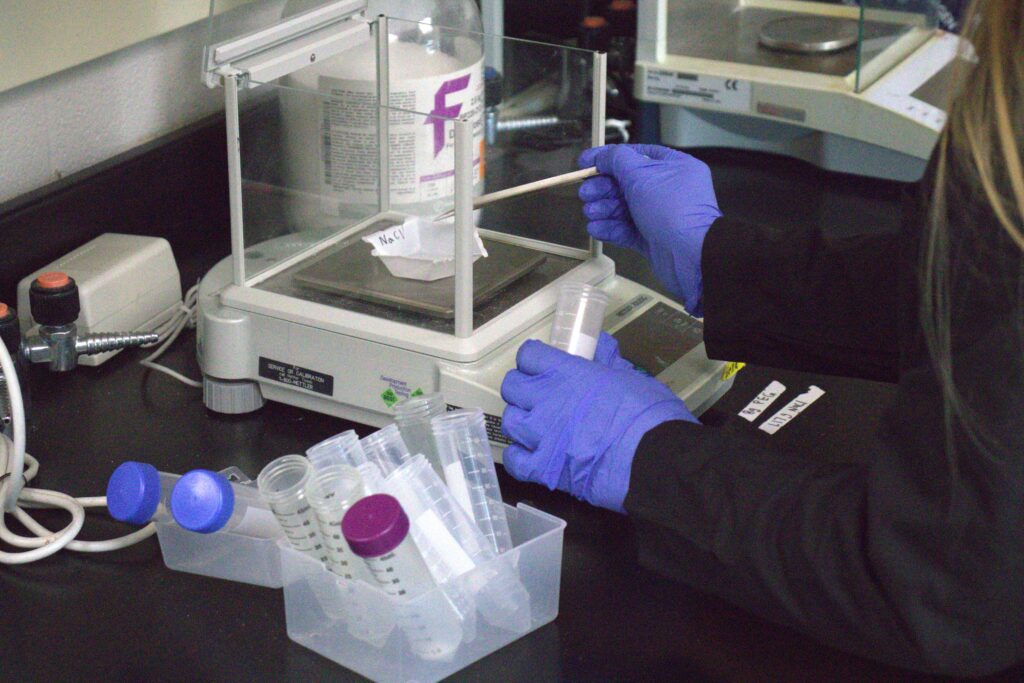Michigan’s Department of Health and Human Services awarded an $800,000 grant to the Ferris Shimadzu Core Laboratories for wastewater studies.
Student employees working in Shimadzu Core Laboratories are conducting tests of wastewater samples from under the Ferris campus and surrounding communities. These tests prevent illnesses such as COVID-19, RSV, Norovirus, Influenzas A and B and E. coli from spreading throughout the water systems.

In 2020, during the COVID-19 pandemic, the Department of Environment, Great Lakes and Energy partnered with Michigan’s Department of Health and Human Services to fund a new type of technology using tests for viruses and other sorts of bacteria in wastewater as a means of public health information.
Professor of Biological Sciences and Lab Director of Shimadzu Core Labs Dr. Schuyler Pike discussed how the grant funded a new form of technology.
“So the instrument itself is cutting edge. The digital droplet PCR is cutting edge because it is so sensitive it can detect one case in a dorm in the wastewater,” Pike said. “We take wastewater and we’ll condense it down to the RNA and the wastewater, and then we’ll test the RNA to see if there is any RNA from viruses. It’s super sensitive. It can detect one part per billion, one part per trillion of viral DNA.”
Pike explained how monitoring the wastewater using this polymerase chain reaction technology is done. Digital droplet PCR technology measures the amount of DNA and RNA inside a sample. In this case, it separates the RNA and DNA so it can track which RNA matches up to viruses inside the sample if there are any. While it was used during the pandemic, this technology could detect the COVID-19 virus before the clinical data could show COVID-19 inside a community area.
This $800,000, known as the “Sewer Grant,” allowed Shimadzu Core Labs to expand their research to detect other diseases. They have tested it all across campus, ranging from North campus areas like North Hall and Clark Hall to South campus dorms like Merrill, Travis, Pickell and Brophy/McNerney Halls. They have also inspected other community areas, including Ludington, Cadillac, Grayling, Lake City and Reed City.
Laboratory technician and Ferris alumna Heather Schoenherr explained why wastewater studies are important for the community.
“Our job is especially important in rural areas because we cannot rely on clinical data to know about the health of the community because normally in rural areas, people don’t have health insurance, they don’t have the money to go to the doctor or they don’t trust the medical professionals,” Schoenherr said. “So sometimes the only way to know what is going on in these communities is through wastewater monitoring. That’s why it’s important that we continue to get grants and do our jobs because we don’t actually know what’s going on with the population.”

experience that benefits both their careers and educational learning. Photo by: Sam Mulder|Torch Photographer
Student employees working in Shimadzu Core Labs actively participate in testing wastewater samples using various equipment. They each expressed their gratitude for the grant, as it funded their research and their work experience.
Biotechnology and forensic biology senior Leah Levandowski shared her thoughts about the grant.
“I think it’s great. I mean there’s always fear that we’re going to lose our grant. That’s just part of working at a lab,” Levandowski said. ”So being able to get a grant again and it be that big, I think it’s amazing and it shows that there is still a need for the work that we’re doing.”
Levandowski further stated that while working in the lab, she has gained leadership and troubleshooting skills not usually seen in the classroom.
Students in the biology field experience real work in labs and learn how to use the equipment that comes with conducting these tests. While some students gain much-needed skills and experience outside of the classroom, others see the grant as a gateway to the future of lab work and student employment.
Biology and pre-med senior Donna Williams expressed her thoughts about what the grant could do for the lab in the future.
“To know that we got that grant to keep doing our E. coli project is really awesome because we do it all summer long,” Williams said. “I think we could do more projects as a lab if we could continue to get more funding. I think there’s a lot of potential here, and it could just make more opportunities for students on campus.”
Williams also explained how working in the lab taught her how to do necessary tasks such as RNA kits, plating, color tests and working with others in the same fields as her.
Pike expressed his pride towards his current and previous students who worked and continue to work on this project, ensuring there will be more projects like this in the future.
